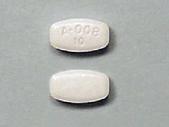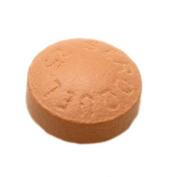Huge doses of potent antipsychotics flow into state jails for troubled kids

Drugging juveniles: Doctors hired to evaluate kids in state custody have taken huge payments from drug companies
Interactive: Compare prescribing habits among DJJ psychiatrists who received payments. Plus, see prescribing habits for more than 3,800 psychiatrists around Florida who billed Medicaid.
Drugging juveniles: Doctors hired to evaluate kids in state custody have taken huge payments from drug companies

Related
more florida news »
- Disney World's Space Mountain reopens after rider found unconscious | Comments 2
- Shields shuts down Marlins in Rays' 4-0 win
- Ex-pastor of Tampa megachurch charged with DUI
- Rays 4, Marlins 0
- Benches making huge impact on '11 NBA playoffs
- State budget awaiting Scott’s sig to cause pain before any gain, economists say
- Scott to spend Saturday on budget review until…
- Deutch on Obama’s Israel boundary proposal: ‘The 1967 borders are indefensible’
- Scott: New jobless numbers shows Florida on the path to recovery
- Education officials urge Scott to put down veto pen
Florida Lottery news, numbers
Get updates on the latest Lotto drawings plus coverage of the new multi-state Powerball game. Winning numbers
Fallen heroes
More than 200 men and women with ties to Florida have given their lives in Iraq and Afghanistan.
Palm Beach Post Staff Writer
Updated: 10:30 a.m. Sunday, May 22, 2011
Posted: 7:51 p.m. Saturday, May 21, 2011
Florida has plied children in state juvenile jails with heavy doses of powerful antipsychotic medications.
The pills, widely viewed as the "big guns" of psychiatry, can cause suicidal thoughts and other dangerous side effects.
Yet, in state-run jails and residential programs, antipsychotics were among the top drugs bought for kids - and they routinely were doled out for reasons that never were approved by federal regulators, a Palm Beach Post investigation has found.
Reacting to the newspaper's findings, the head of Florida's Department of Juvenile Justice ordered a sweeping review of the department's use of antipsychotic medications. As it stands now, DJJ doesn't track prescriptions and has no way of telling whether doctors are putting kids on pills simply to make them easier to control.
"This is a very important issue," said Broward County Public Defender Howard Finkelstein, whose office represents children in juvenile court. "If kids are being given these drugs without proper diagnosis, and it is being used as a 'chemical restraint,' I would characterize it as a crime. A battery - a battery of the brain each and every time it is given."
In some cases, the drugs are prescribed by contract doctors who have taken huge speaker fees and other gifts from makers of antipsychotic pills, companies that reap staggering profits selling medications, The Post found.
The medications have poured out at such a rate, said one former inmate, that even a confused teenager could tell that this wasn't how things were supposed to be.
"The questions recently brought to our attention are serious, and deserve answers based on a careful, thorough and independent review of the facts," said Wansley Walters, who was appointed DJJ secretary in January by Gov. Rick Scott. Citing the ongoing probe, Walters declined to answer questions about how the department has handled the potent medications.
A look at the sheer numbers of drugs purchased, though, suggests a startling story is unfolding in state homes for wayward kids.
In 2007, for example, DJJ bought more than twice as much Seroquel as ibuprofen. Overall, in 24 months, the department bought 326,081 tablets of Seroquel, Abilify, Risperdal and other antipsychotic drugs for use in state-operated jails and homes for children.
That's enough to hand out 446 pills a day, seven days a week, for two years in a row, to kids in jails and programs that can hold no more than 2,300 boys and girls on a given day.
No central tracking
Private companies run most of DJJ's 116 residential programs. When it comes to tracking drugs going into these homes, the state can't easily collect and analyze information. A former spokesman estimated that gathering data about drugs most recently used in jails and programs would take 2½ months.
For this story, DJJ provided drug information only for its 25 jails and for three programs, a fraction of all residential homes statewide, and only for a two-year period ending in mid-2008.
Some companies that operate homes for children don't have drug reporting requirements written into their state contracts.
Interviews suggest that these homes, too, hand out plenty of drugs. One representative of a private company estimated that a third of the kids in the company's residential programs are taking antipsychotics and other psychiatric medications.
Antipsychotics target certain parts of the brain to produce a tranquilizing effect. Medical experts disagree about whether they're appropriate for regular use in children. The pills can cause suicidal thoughts in kids, as well as weight gain, high blood sugar, diabetes, heart problems and uncontrollable facial twitches and body tics, clinical trials have shown.
Even so, antipsychotics were among the top drugs bought for children in state-operated jails and residential programs.
'Out like a light'
Paula was 14 and living in Palm Beach County when police hauled her in as a runaway. At the station, she kicked over a table and got arrested, she said. Though it was her first offense, a juvenile judge committed her to a program.
The Post is protecting Paula's identity because she was arrested as a juvenile, and she still is a teenager. She said she refused to take drugs in DJJ custody, but added that she saw a lot of Seroquel.
FIRST OF TWO PARTS
In charting the state Department of Juvenile Justice’s use of prescription drugs, The Palm Beach Post analyzed department drug purchasing information and state Medicaid billing data and reviewed thousands of pages of DJJ inspection reports, drug company disclosure records and court documents. The Post also conducted dozens of interviews with state officials, attorneys, medical experts, advocates and child psychiatrists.
The task was complicated by DJJ’s inability to access its own records easily. Theoretically, the department can track prescriptions, but the system is hampered by ‘functionality concerns,’ a spokeswoman said.
Asked about drugs dispensed to children, DJJ could provide information only for a two-year period ending in mid-2008, and only for its 25 jails and a fraction of its residential programs. The lock-ups represent only about one-fifth of all juvenile jails and residential homes in Florida.
No information was available on the amounts of antipsychotic drugs dispensed in the more than 100 remaining programs for juveniles, which are run by private contractors.
ABOUT THE REPORTER
Michael LaForgia has reported on Florida’s pill mill crisis, spurring arrests and reforms at the state and local levels, and exposed loopholes in Florida law that put children at risk in summer camps. He joined The Palm Beach Post in 2006.
MOST POPULAR
- Drivers in West Palm, Delray shot in 'bump and rob' attacks
- Private school enrollment declines as struggling families opt for public education
- 79-year-old Miami woman's leg severed when pressure cooker explodes
- Florida's budget cuts stir job fears
- Huge doses of potent antipsychotics flow into state jails for troubled kids
Latest top videos
PostPix » Latest news photos
|
|
||
|
|
Historic Archive
(1897 - 1988)
Search historic editions of The Palm Beach Post, Palm Beach Daily News, Miami News and more. It's free!










the above medications can actually cause suicidal tendencies to develope
in children and adults. This needs to be investigated. Mental health physicians are too quick to prescribe Pscycotropic drugs.
10:04 PM, 5/21/2011
10:29 PM, 5/21/2011
We don't need your thought control"
10:59 PM, 5/21/2011
11:43 PM, 5/21/2011
1:08 AM, 5/22/2011
2:48 AM, 5/22/2011
Eli Lilly's #1 cash cow Zyprexa drug sale $38 billion dollars to date has a greater risk of causing type 2 diabetes over the non-user of Zyprexa.--
Daniel Haszard Zyprexa victim activist http://www.zyprexa-victims.com
3:20 AM, 5/22/2011
Bless their hearrs!
3:42 AM, 5/22/2011
Should their actions to do so be cheered on? No.
Will society most likely be safer with these individuals off the street permanently? YES.
6:52 AM, 5/22/2011
7:06 AM, 5/22/2011